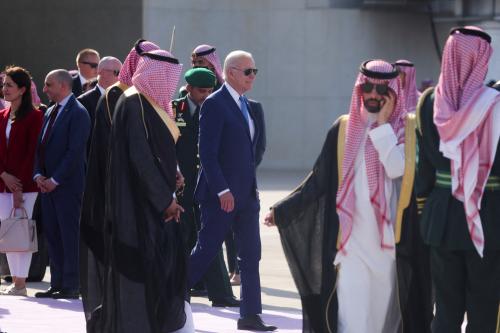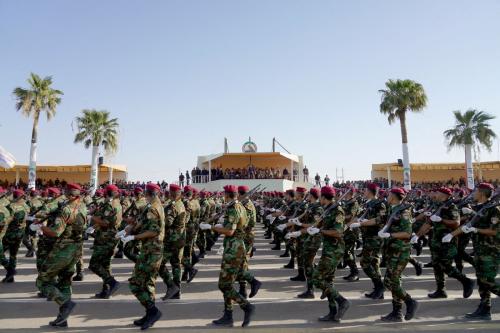The first U.S.-Islamic World Forum grew out of the 9/11 attacks and the immediate U.S. response, but in 2014, sectarianism has emerged as perhaps the biggest source of extremism in the greater Middle East.
Much of the sectarianism is a bitter byproduct of the Arab spring: the collapse of governments throughout the Middle East has opened up the political space, allowing religious chauvinists to make their play for power and influence. Sectarianism has also grown in Pakistan, with weak governments there at times standing by or even fanning the flames. The spread of social media accelerates the process, enabling sectarian messages to reach a broader audience. Regimes such as Saudi Arabia also play sectarian cards to shore up popular support and discredit their rivals like Iran.
War looms over all of this, fueled by sectarianism and in turn inflaming the situation further. First the civil war in Iraq, and now the civil war in Syria, stoked sectarian fires. In Iraq, the Shiite majority continues to assert its power against a Sunni minority bitter at losing influence. In Syria, the Alawite-led regime, often lumped into a broader Shiite community, faces a vast insurgency drawn primarily from the Sunni majority. Thousands of Shiite and Sunni volunteers have flocked to Syria, taking up arms against each other in a bitter circle of violence and hate. Throughout the region, partisans aid their friends. Some, such as Iran, would prefer to avoid a sectarian conflagration yet add fuel to the fire nonetheless because sectarian-based alliances are one Tehran’s means of securing influence.
The United States and its European allies are largely powerless to take on sectarianism directly. The forces fueling the conflict are strong, and Western ability to shape the discourse of Islam is weak in part due to official ignorance of many of the parties and concerns that have heightened sectarian sentiment. To combat sectarianism without making the problem worse, the United States needs to work with Muslim world leaders. The U.S.-Islamic World Forum is an excellent place to begin this effort.



Commentary
Sectarianism as the Source of Extremism in the Middle East
June 7, 2014